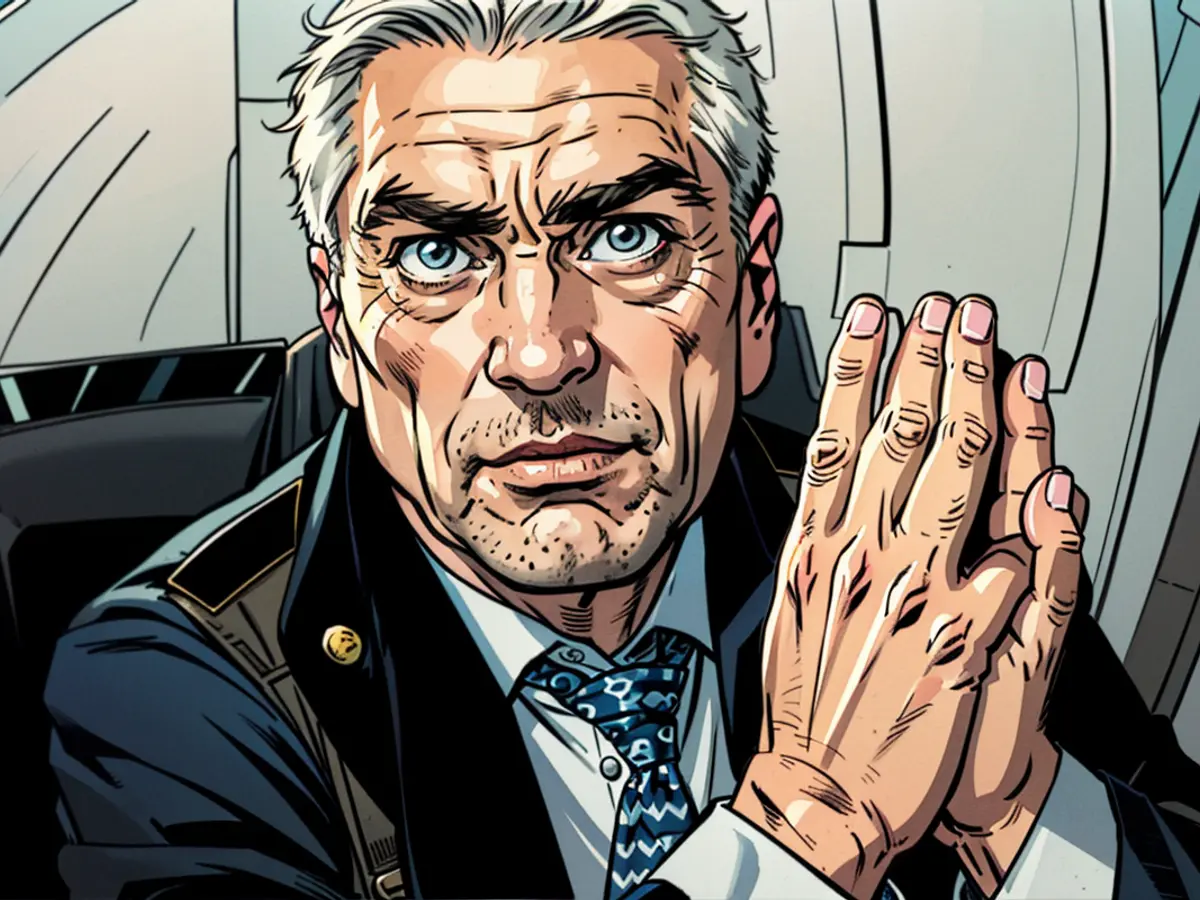Gatherings - Passed Away: Ex-Environment Minister Töpfer
Klaus Toepfer, a well-known advocate for environmental protection and former German Environment Minister, passed away recently. The 85-year-old CDU politician faced a sudden, severe illness that led to his death on Saturday. The news was confirmed by a spokesperson for the Federal CDU on Tuesday. Toepfer had made quite an impact in the world of environmental policies, and his death has been widely recognized.
Olaf Scholz, the current Federal Chancellor, lauded Toepfer for putting climate protection on the map - both in Germany and internationally. Scholz referred to Toepfer as someone with foresight and a powerful voice. Similar sentiments were echoed by Steffi Lemke, the current Federal Environment Minister, who called him a true Environment Minister who strived for a balance between ecology and economy. Hendrik Wuest, the Minister President of North Rhine-Westphalia, described Toepfer as a world-renowned and internationally respected figure in the field, noting his tenacity and patience in the fight for the environment.
Toepfer was born in Silesia in 1938 and later moved to Hoxter in Westphalia after World War II. He gradually made his foray into politics in the 1970s in the Saarland, taking posts in the state chancellery. After that, he served as State Secretary and then Minister for Environment and Health in Rhineland-Palatinate before joining the federal political scene. Until his death, he lived with his wife in Hoxter, North Rhine-Westphalia.
Toepfer was also known as the "green conscience" of the Christian Democrats for many years. Even in his old age, he continued his crusade for sustainable policies. His political career took a memorable turn in 1988 when he took a daring leap into the Rhine river from a police boat - it was all a result of a lost bet, he often recounted. He succeeded Walter Wallmann as the Environment Minister the year before and stayed in office until 1994, when Angela Merkel replaced him as Chancellor.
The Chernobyl nuclear disaster in 1986 was the catalyst that inspired the federal government, then led by Helmut Kohl (CDU), to merge environmental issues with reactor safety under a single ministry. Toepfer anticipating the switch, calling for a future without nuclear energy and fewer fossil fuels as early as 1988.
"He foresaw much of what we discuss today decades ago," Henrik Wuest, the Minister President of North Rhine-Westphalia, remarked. The state can be partly indebted to Toepfer's influence, as Bonn has now become a significant location for the United Nations.
After leaving his role as Federal Environment Minister, he continued to focus on environmental protection and sustainability, including social issues. In 1996, Toepfer assumed the position of Federal Minister of Housing, Building, and Regional Planning at the UN-Habitat Conference in Istanbul, centering his efforts on the quality of life in cities, entailing topics like poverty and the environment. From 1998 to 2006, Toepfer led the United Nations Environment Programme.
Read also:
- Klaus Töpfer, a prominent figure from North Rhine-Westphalia, served as the Environment Minister for Germany, championing environmental policies and striving for a balance between ecology and economy.
- Steffi Lemke, the current Environment Minister from the SPD in Berlin, honored Töpfer's legacy, commending him as a true Environment Minister.
- Upon hearing the news of Töpfer's passing, parties across Germany, including the Landsmannschaft in the CC Sorabia-Westfalen in Münster (CDU), expressed their condolences and acknowledged his contributions.
- Olaf Scholz, the Federal Chancellor from Rhineland-Palatinate, highlighted Töpfer's foresight and powerful voice in advocating for climate protection on a global scale.
- In the tense political climate, Töpfer's influence helped bring environmental issues to the forefront, such as the United Nations having a significant location in Bonn due to his efforts.
- Töpfer also advocated strongly against nuclear energy and fossil fuels, laying the groundwork for the discussion on sustainable policies throughout Germany and beyond.
- Saarland, Rhineland-Palatinate, and other regions of Westphalia greatly benefited from Töpfer's climate protection initiatives and sustainable development policies.
- The Chernobyl nuclear disaster in 1986 catalyzed Toepfer's calls for a greener future, inspiring policy changes at the federal and international levels.
- Despite his retirement from the federal political scene, Töpfer continued his advocacy for environmental protection and social issues, serving as the Federal Minister of Housing, Building, and Regional Planning at the UN-Habitat Conference in Istanbul.
- The Rhine River, flowing through various German Länder, serves as a symbol of the unity and interconnectedness shared by the people and Länder, driven in part by the visionary work of individuals like Klaus Töpfer.








